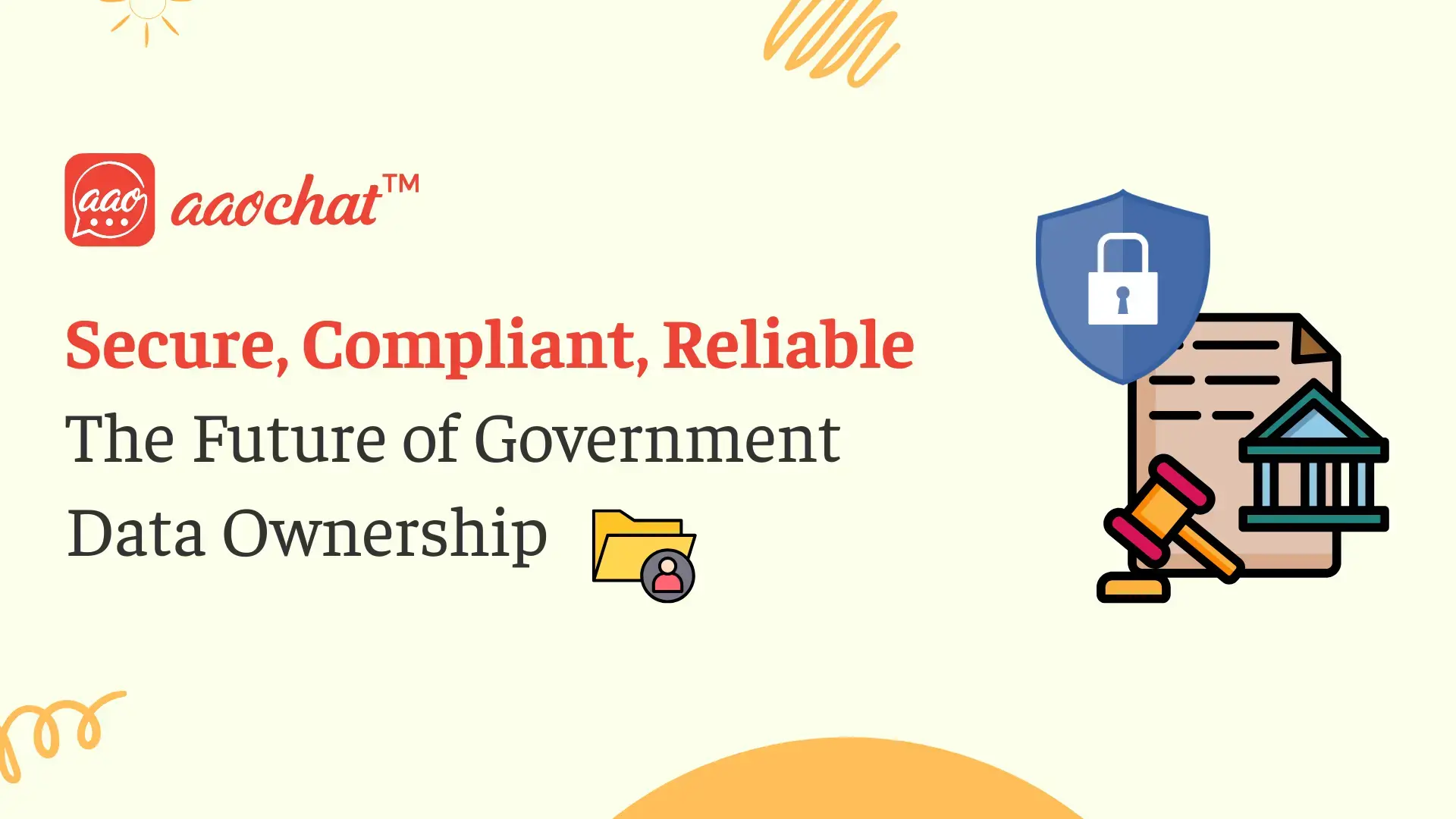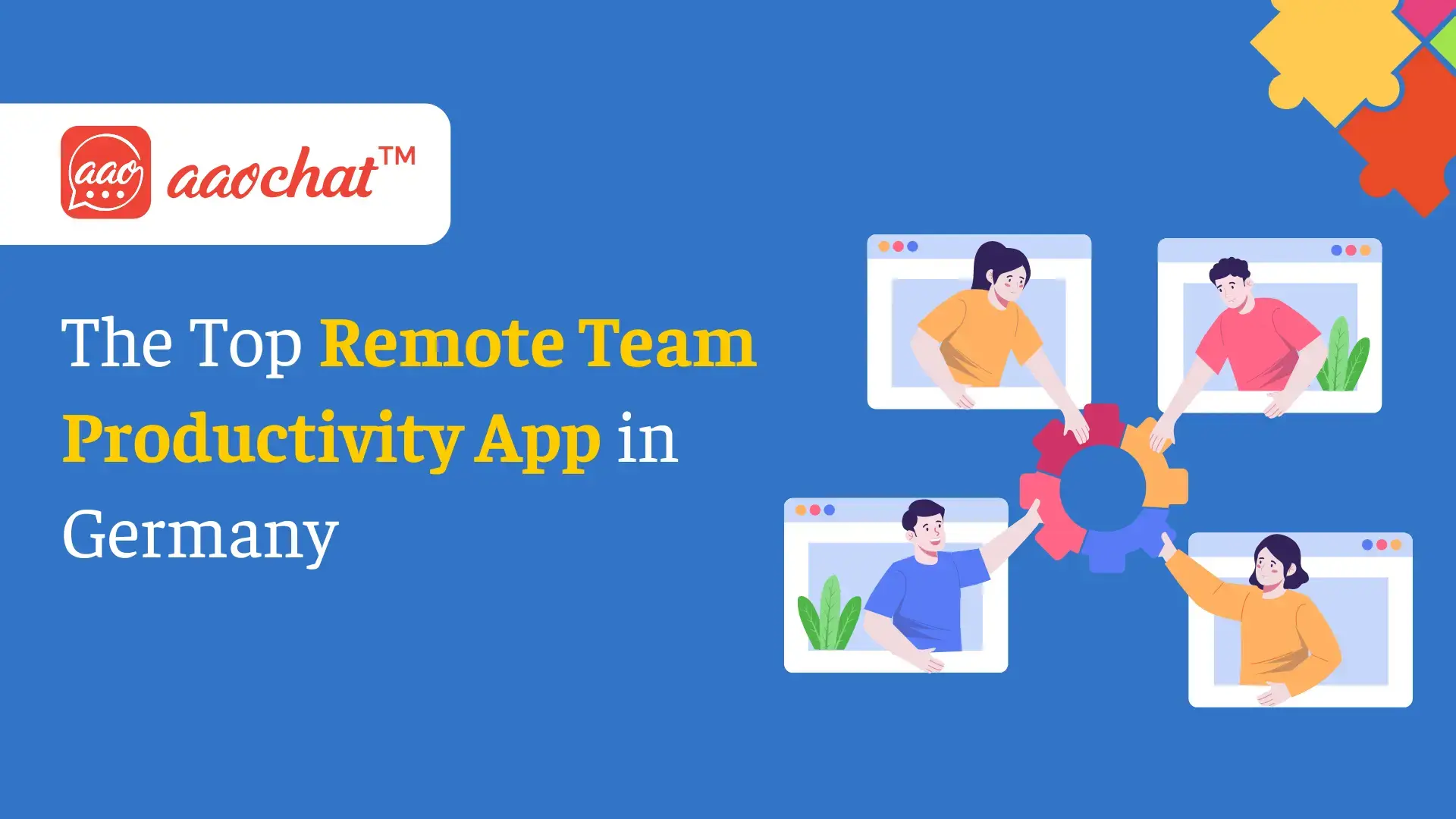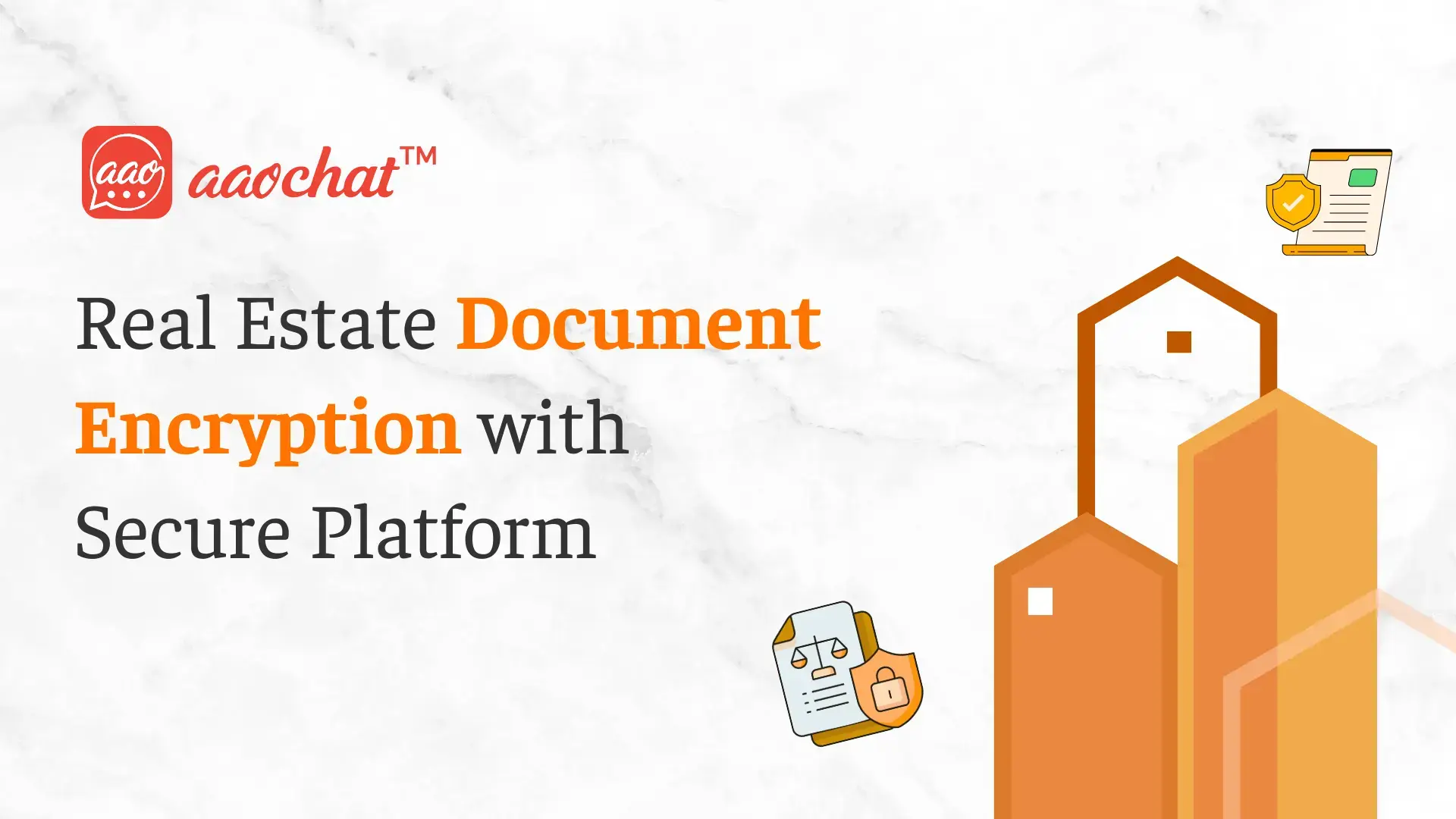
Data Ownership & Privacy Compliance In Public Chat Platforms

Introduction
In this digital era of governance, the system of physical files and face-to-face communication has shifted towards chat platforms. Each message, document shared, and audio/video files are exchanged between the parties in accordance with government messaging privacy regulations.
Government data ownership and data privacy are no longer optional. And that is why a move towards government data privacy best practices can be observed.
Let's proceed with this guide to understanding government data ownership.
Understanding Data Ownership in the Public Sector
Data ownership refers to possessing complete control over the data, its storage location, and to whom the data is shared. In the public sector, this means the government decides where data resides, who accesses it, and how long it is retained.
Why It Matters
-
Protects national and citizen data from third-party misuse.
-
Strengthens accountability within public sector communication.
-
Ensures security, transparency, and public trust.
Three Layers of Data Ownership
-
Infrastructure Ownership – Hosting data on government servers or private clouds ensures it never leaves national borders.
-
Access Ownership – Only authorized officials or administrators can retrieve or delete communication data, minimizing insider or external risks.
- Policy Ownership – The government defines how data is managed, retained, or purged, aligning with compliance mandates.
What Privacy Compliance Looks Like in a Secure Government Messaging Platform?
Key Elements of Privacy Compliance
-
End-to-End Encryption (E2EE) – All messages, files, and calls are encrypted during transmission and storage. With data encryption, only the sender and receiver can decrypt and read the data.
-
Self-Hosted or On-Premise Deployment – Hosting within government infrastructure ensures localization and eliminates reliance on foreign servers.
-
Access Control – This gives the user permission and control over who can access, view, edit, and delete the data.
-
Custom Data Retention Policies – Set data retention timelines that meet both internal and legal requirements.
- Audit Trails and Logging – Record all system activities to maintain accountability and traceability for compliance audits.
6. Integration with Existing Systems – Maintain security while enabling interoperability across departments and agencies.
Outcome
-
Privacy compliance in government chat systems builds trust, accountability, and operational transparency, ensuring that sensitive information stays within authorized boundaries.
Read more: Secure Government Chat Platforms - Defence Against Cyber Threats
Best Practices for Privacy Compliance in Government Apps
-
On-Premise Infrastructure
Adopt an on-premise infrastructure to keep data hosted inside the country's borders and maintain legal ownership.
-
End-To-End Encryption
Implement encryption internally without relying on any third-party vendors. This ensures the complete security of data and access to communication content.
-
Define Clear Access and Retention Policies
Set strict rules for who can access communication data and how long it can be stored before deletion. This maintains regulatory alignment and reduces storage vulnerabilities.
-
Conduct Regular Compliance and Security Audits
Schedule periodic audits to assess vulnerabilities, confirm encryption effectiveness, and ensure that compliance frameworks are up to date.
-
Enforce Role-Based Access Controls (RBAC)
Assign data visibility based on job roles. Limiting access reduces insider threats and helps maintain accountability.
-
Train Staff And Make Them Aware
Prevention is always better than a cure. Organise training seminars regularly to help employees understand the responsibility of secure data handling.
-
Monitor Compliance Using Automation
Use automated alerts and dashboards to detect anomalies, prevent policy violations, and maintain 24/7 compliance visibility.
Conclusion
As every sector has begun embracing digital mediums and collaborations, data ownership has become a critical and essential part of privacy compliance and national security.
When a government controls its data, it ensures not just compliance but also sovereignty, accountability, and citizen confidence.
Platforms like Aao Chat are designed to empower governments with on-premise deployment, advanced encryption, and full administrative control.
By adopting such solutions, agencies can build secure digital ecosystems that respect privacy, meet compliance standards, and enable efficient communication without compromise.
We also support teams in logistics, SaaS, HR, manufacturing, NGOs, and more. Let’s talk about a custom deployment that fits your communication flow.
Book a callFrequently Asked Questions
Find quick answers to common questions about AaoChat's features, security, and customization options.
Secure chat platforms ensure sensitive government data stays under national control with data ownership. The encrypted platforms prevent unauthorized third-party access.
Features such as end-to-end encryption, audit logs, custom retention policies, and on-premise hosting make a platform privacy-compliant.
On-premises hosting allows data access inside the protected infrastructure. Any unauthorized access from outside the infrastructure is not permitted. This also ensures data-localization laws for government data.
Creating and managing multi-departmental channels, applying and staying in control of data regulations, and ensuring data security across all communication channels.


